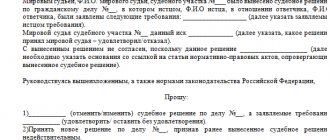Grounds for receiving alimony for grandparents
Based on the existence of actual family relations between a child and his grandparents, the Family Code of the Russian Federation provides for alimony obligation to support disabled relatives.
Thus, in accordance with Article 95 of the Family Code of the Russian Federation, grandparents have the right to receive alimony from their pupils. This article of the law establishes that grandchildren have an obligation to support their grandparents only in cases where adult children do not have such an opportunity.
Also, grandparents often act as actual educators of their minor grandchildren. Article 94 of the Family Code of the Russian Federation establishes that pupils have the obligation to support their actual educators.
Important: the right to receive alimony arises only if the upbringing was carried out for a long period of time, namely more than 5 years.
Thus, at the moment, the legislation officially establishes the obligation of grandchildren to support their grandparents, as well as the obligation of pupils to support their actual educators.
When is guardianship not possible?
A grandmother may be denied guardianship in the following cases:
- all necessary documents have not been collected;
- a relative has a serious illness;
- there is a conviction for a particularly serious crime;
- a child over 10 years of age expresses refusal of guardianship by the grandmother;
- mom or dad disagree with custody.
Parents must give permission to obtain guardianship of their child.
Child support obligations
Alimony obligations of grandchildren to their grandparents are one of the measures to support the family in the Russian Federation, and the value of the family and family relationships between all its members is enshrined in Article 1 of the Family Code of the Russian Federation.
It is worth noting that grandchildren do not have a primary obligation to support their grandparents or actual caregivers. First of all, such an obligation is imposed on adult children or spouses of disabled grandparents.
However, often adult children or spouses are not able to financially support their disabled parents due to certain circumstances. It is in this case that the obligation to support relatives in need is imposed on the grandchildren or actual dependents of such persons.
An important point: grandparents can apply for alimony from their grandchildren only if they can prove that they really need such maintenance, and the monthly income they receive does not allow them to ensure a full-fledged existence.
The alimony obligations of grandchildren to disabled relatives (in particular, to grandparents) are similar to the obligation of parents to support their minor children.
Benefits, benefits and payments provided to guardians
To the person (in this case, the grandmother) who has taken care of the child, after the guardianship relationship has been formalized, the state and local authorities can provide a number of measures of financial and other support.
First of all, after completing the entire process, the guardian is issued a lump sum cash benefit by the social security authorities.
Depending on the region, it can be obtained in the amount of 15 thousand rubles.
Support methods apply regardless of whether the grandmother is a temporary or permanent guardian for her grandchildren.
In addition, a monthly allowance may be provided for the grandmother as a significant increase in pension. The amount of payments may depend on the age of the child, region, and also on the period for which guardianship was introduced.
In any case, a woman who has decided to become a guardian should know all the financial details of the issue in advance. A lawyer who will study local legislation and be able to represent the interests of his client in social services on the basis of a power of attorney can also help with this.
To obtain financial support, you need to collect no less a package of documents than is required to establish initial guardianship. However, in some cases it makes sense to work hard.
Claim for recovery of alimony from grandchildren
When grandchildren refuse to provide for their grandparents, these persons have the right to go to court with a claim for alimony. A statement of claim for the recovery of alimony from grandchildren is submitted to the magistrate in the court whose territorial jurisdiction includes the address of the grandson’s place of residence.
The plaintiff in the statement of claim is the disabled grandparents, and the defendant is the grandson from whom alimony will be collected. In the statement of claim, the plaintiff must, first of all, prove his need to receive alimony. Such evidence may include certificates of the amount of a pension or other income, as well as medical documents confirming the presence of diseases and the need for additional expenses for treatment. Also, when going to court, grandparents must confirm in court the existence of an actual family relationship with the defendant-grandson.
The statement of claim is filed according to the number of persons in the case - that is, it is necessary to prepare a set of documents for each party. The parties to the claim will be the court, the plaintiff (grandparent) and the defendant (grandchild).
To accept the claim by the court, you must pay a state fee of 150 rubles (Article 333.19 of the Tax Code of the Russian Federation).
What to do if your ex-daughter-in-law is against communication?
A woman who is offended by a man quickly forgets how much work, effort, and money the mother of her ex-husband put into their child.
Emotions do not allow us to adequately assess the current situation.
Often the daughter-in-law prevents the grandmother from communicating with her grandchildren, changes her phone number, and sometimes even moves to a different address.
Relatives can refer to the legislation, according to which a minor, after the divorce of his mother and father, living in the territory with one of them, has the right to communicate with all representatives of the family . Even if they are in different states.
The best solution to conflict situations is peaceful. Guardianship and trusteeship authorities can help resolve the problem. But if it is not possible to reach a consensus, you need to go to court. Restricting a child’s rights is a violation of all legal and moral norms.
Such principles on the part of the mother directly harm his mental health. Some women behave aggressively towards former family members and turn the child against them.
When making a decision, the court will take into account not only the opinion of the child, which the mother could impose, but also the arguments of other opponents. Grandmothers can take care of their grandchildren and take care of their health. If there is no verbal agreement with the parents, the court determines the frequency of meetings.
There are precedents in judicial practice when a daughter-in-law uses the services of her mother-in-law as a nanny. At first after the divorce, she accepts the help of her grandmother, and when the baby grows up, the woman goes to work and does not allow them to see each other anymore.
Such incorrect behavior is unacceptable from both legal and moral aspects. The position of the law on this issue is firm - a daughter-in-law can limit communication with a child only if there are facts of a negative impact on the younger generation.
The procedure for collecting alimony from grandchildren in favor of grandparents
The law allows the payment of alimony to grandparents both voluntarily (that is, by agreement of the parties) and compulsorily (based on a court decision). So, if a grandmother or grandfather filed a claim in court to collect alimony from their grandchildren, and the court satisfied such demands, then from the moment the court decision enters into legal force, the grandchildren are assigned an obligation to pay alimony in the amount established by the court.
After the court's decision to pay alimony has entered into legal force, the plaintiff (grandparent) receives a writ of execution from the court, confirming the need for the grandson to pay a certain amount of alimony every month.
To execute a court decision, a writ of execution must be submitted to the territorial Office of the Federal Bailiff Service of the Russian Federation (FSSP RF). Upon presentation of a writ of execution, the bailiff, within 5 days, initiates enforcement proceedings for the forced collection of alimony. If the alimony payer refuses to voluntarily fulfill the obligation, the bailiff has the right to withhold a certain amount from the payer’s monthly earnings and other income, and if a debt arises, to foreclose on the property.
Registration of guardianship over a child by a grandmother
It includes several successive stages.
First, the grandmother must contact the guardianship service with an application to appoint herself as a guardian and a package of necessary documents.
After this, the specified body creates a special commission. She will check the financial situation of the candidate for guardianship, as well as the living conditions that will be created for the child.
If everything goes well, then a decision is made to introduce guardianship.
This document is valid for three years. After this, the grandmother will have to repeat the entire procedure again.
Amount of child support for grandparents
First of all, it is worth noting that the law allows for the conclusion of an agreement on the payment of alimony for disabled grandparents, and the amount of alimony will be established by agreement between the parties.
If an agreement between the parties on the amount of alimony and the procedure for its payment has not been reached, the amount of alimony will be established by the court.
Article 98 of the Family Code of the Russian Federation does not establish any amount of alimony, but, on the contrary, states that the amount recovered is determined by the court, and when establishing the amount of the amount, the court takes into account the financial situation of the parties and determines whether the parties have the financial ability to pay the alimony required by the claim. payments. This article also establishes that alimony for grandparents can be recovered from all grandchildren simultaneously in shares established by the court, even if the plaintiff in the statement of claim does not name the remaining grandchildren as defendants and does not make any demands on them.
The law also establishes that alimony for grandparents is paid not as a share of wages or other income, but in a fixed sum of money.
Author of the article
Who is being considered?
Usually all issues are dealt with by the guardianship service. However, the procedure may be accompanied by problems. In this case, there are additional ways to solve them.
Child protection
They first study the application and the entire package of documents submitted by the grandmother.
Then there is a visit to the place and inspection of the conditions of the child’s future living.
Based on all the information collected, a decision is made to assign the grandmother the status of a guardian.
Challenging the decision - in court
It happens that the guardianship authority may refuse a grandmother without sufficient grounds. Then this decision should be appealed in court. The claim should refer to the fact that all previously submitted documents are in perfect order. In addition, it is necessary to emphasize that the grandmother fully complies with the requirements for guardians. The essence of the demands may be to force a decision on guardianship.






